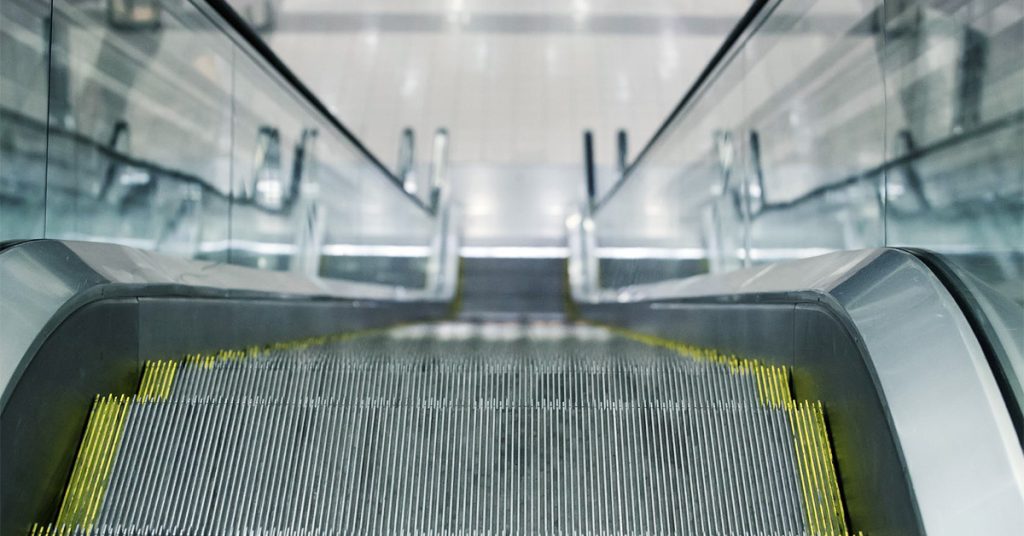Posts Tagged ‘defective’
Elevators and Escalators Have Long Been Out of Order at Westwood Train Station
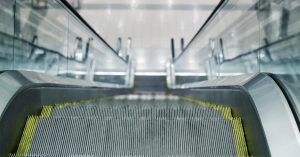 Commuting is a major stress in the Boston area. Having to ride the MBTA should ease the burden. But it often just adds anxiety, especially for commuters at the Route 128/University Station in Westwood.
Commuting is a major stress in the Boston area. Having to ride the MBTA should ease the burden. But it often just adds anxiety, especially for commuters at the Route 128/University Station in Westwood.
Two news stories have put the spotlight back on the long-running equipment and system problems at the Westwood station, including out-of-service elevators and escalators. Offering both MBTA and Amtrak train service, the Westwood station serves half a million commuters each year. When systems are running on time, you can take the MBTA into Boston in less than a half hour. The MBTA also offers service to Providence or Amtrak provides travel beyond Rhode Island.
With over 2,500 spaces, the Westwood station is also one of the rare MBTA stops where you can still find a parking space. The problem is walking through the station.
The station is owned by Amtrak, which has frequently closed escalators and elevators over the past few years. One of the two elevators has been out of service altogether for several years. They are in no condition to re-open. According to a recent NBC Boston report, every escalator and elevator has expired state certifications. NBC Boston first reported on the station three years ago, so this isn’t a new story. It is just one which has grown worse.
Amtrak says it has no responsibility to make repairs, citing federal law which exempts it from meeting all state and local building regulations. State officials say they have met with Amtrak, to no avail.
Failure to maintain the escalators and elevators creates a safety hazard for commuters and puts an extra burden on the handicapped. NBC Boston interviewed a rider who was legally blind and spoke about having to climb the Westwood station’s tall staircases. As a result, he has missed his special needs van on some days.
We need to learn from past tragedies on escalators and elevators, including the fall that killed 4-year-old Mark DiBona in 2011. The child fell from a defective second-floor escalator at the Auburn Mall. The escalator had a 6 inch gap, which exceeded state regulations. Lawyers for the boy’s family said the escalator management company was aware of the gap and had filed plans with the town to fix it. But the company never followed up. The little boy suffered a head injury in the fall and died the next day.
Hopefully, the state, MBTA and Amtrak will reach agreement on the much needed repairs at the Westwood station soon. All three have a responsibility to the public and commuters. But it’s also important because another public safety concern has recently arisen at the station.
After a long day in Boston, every commuter just wants to get home. Over the past year, the rush has gotten worse at the Westwood station. Some commuters are now running to their cars to beat traffic backups and 20-minute delays leaving the station.
The traffic backups are a new development. Drivers used to have two choices to pay for parking. They could pay inside the station with their credit card or they could simply drive through the parking garage exit. The parking fee would be deducted from their car’s EZPass. Now, the MBTA requires drivers to stop at the parking exit and select how they want to pay. Meanwhile, traffic lines up and pedestrians are put at risk.
WBZ’s I-Team reported on the parking garage earlier this month. The MBTA said the new system has reduced duplicate charges, resulting in fewer refunds. But things need to change at the Westwood station before there is a serious pedestrian accident.
If you see a safety hazard in any MBTA station, we encourage you to take a photo with your cell phone and report it. You can also report equipment that is out of service for a long period of time.
We suggest reporting the problem to at least two offices – the MBTA and the local police department. A local police department can log your complaint immediately while the MBTA or MBTA police may not respond for a few days.
You can also try submitting complaints to the town officials in the community where the MBTA station is located. Try the local building department, the Board of Selectmen or City Council office. Other resources are the state Department of Transportation, your state representative and your local regional transportation agency. These offices may not be directly responsible for a train or bus station, but it may help to keep them aware of ongoing transportation and safety issues.
Here are a few links:
MBTA Customer Support. This page gives you the option to upload a photo.
Regional Public Transportation Authorities in Massachusetts
Massachusetts Department of Transportation
About Breakstone, White & Gluck
The Boston personal injury lawyers at Breakstone, White & Gluck are experts in handling claims involving premises liability and injuries caused by defective property conditions. If you have been injured by someone’s failure to maintain their property, learn your rights. For a free legal consultation, contact Breakstone, White & Gluck at 800-379-1244 or 617-723-7676 or use our contact form.
Hoverboards and Drones Bring Safety Risks
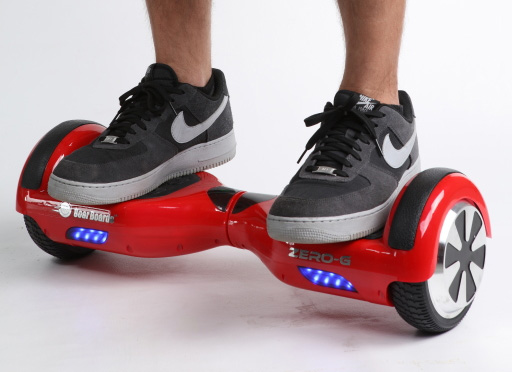 Despite fires and hard falls, the hoverboard was one of the year’s most popular gifts.
Despite fires and hard falls, the hoverboard was one of the year’s most popular gifts.
Reports of hoverboard fires began before the holidays. Amazon even told consumers to return some models in mid-December and notified sellers that they must provide documentation showing hoverboards are compliant with safety standards. The Consumer Product Safety Commission (CPSC) opened an investigation on Dec. 16th, after reports of 10 hoverboard-related fires in Washington, California, New York and other states. The fires often happen during charging.
The CPSC has also received dozens of reports of hoverboard-related falls from hospital ERs, including concussions, fractures and internal organ injuries. Christmas Day brought more injuries, revealed as photos and videos were posted to social media.
Congressman Carlos Curbelo of Florida fell when he tried out his daughter’s hoverboard. He tweeted a photo of himself wearing a sling:
“Confirmed – #hoverboard is for kids. My daughter got it. I ended up in @BaptistHealthSF #ER. #hoverboardChristmas.”
Confirmed – #hoverboard is for kids. My daughter got it. I ended up in @BaptistHealthSF #ER. #hoverboardChristmas. pic.twitter.com/ADRrYBB81J
— Carlos Curbelo (@CLCurbelo) December 26, 2015
We do not think this product is safe for any age. But we agree with his colleague, Congresswoman Illeana Ros-Lehtinen of Florida, who tweeted back: “Ouch. At least it didn’t catch on fire!”
News Headlines
One headline from the Washington Post: “Thanks for ruining Christmas, hoverboards.” Below is a video from the report.
Our Thoughts
This is a dangerous product and safety concerns need to be addressed. If you received one, consider returning it. If you keep it, follow instructions for charging it. Do not charge it overnight or while you are outside the home. Also, remember most airlines have banned hoverboards due to the fire risk.
If you do ride, always wear a proper helmet and padding while using this product. Ask what the local traffic laws are before use.
Drones
Many people also received drones as holiday gifts. The Federal Aviation Administration (FAA) predicted more than 1 million drones would be gifts on Christmas Day.
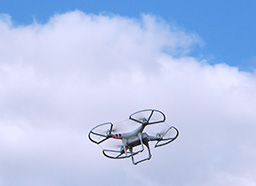 On Christmas Day, photos and videos of drones crashing on the ground, into the neighbor’s roof and even into other family members filled social media. Read this Washington Post report, “Wear a Helmet: All those Christmas Drones are Falling Out of the Sky.”
On Christmas Day, photos and videos of drones crashing on the ground, into the neighbor’s roof and even into other family members filled social media. Read this Washington Post report, “Wear a Helmet: All those Christmas Drones are Falling Out of the Sky.”
The FAA has set up a website to register drones. Anyone with an aircraft weighing from a half-pound to 55 pounds must register with the FAA. Drone owners who are 13 and older must register on the FAA website. Parents with younger children are expected to register on their behalf.
Drone Owners Must Take Care
There are serious concerns about drones interfering with airplane traffic, but there are also very real concerns about general transportation safety. Drone owners must take care to be sure that they do not interfere with traffic, bicyclists or pedestrians. Be considerate and be aware of local laws and ordinances related to drone use.
Read More
December Product Recalls Include Holiday Decoration, Baby Carrier
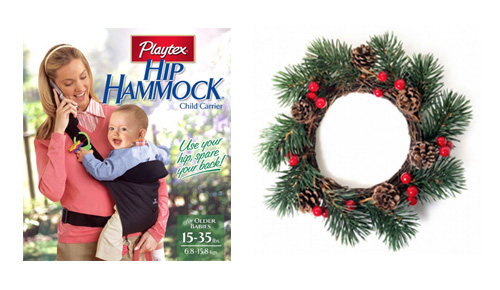 The Consumer Product Safety Commission (CPSC) announced several recalls last week, including a popular holiday decoration and two children’s products. The commission also announced its annual list of winter-related products which were recalled during other seasons.
The Consumer Product Safety Commission (CPSC) announced several recalls last week, including a popular holiday decoration and two children’s products. The commission also announced its annual list of winter-related products which were recalled during other seasons.
Yankee Candle Ring
The Yankee Candle Company recalled about 15,000 pine berry candle rings in the U.S. and 2,000 in Canada. They pose a fire risk because of the synthetic foliage, berries and cones ornamentation. No injuries have been reported. The recalled rings were sold in Yankee Candle and Hallmark stores nationwide from September 2013 through October 2013. They were sold for between $8 and $10 at these stores, as well as through Yankee Candle catalogs and Yankeecandle.com. Consumers are asked to return candles to the nearest Yankee Candle store for a full refund. See the CPSC recall notice.
Playtex Hip Hammock Infant Carriers
Playtex is offering parents a full refund after recalling a baby hammock-style carrier. Playtex Hip Hammock infant carriers were recalled because they pose a fall hazard to children. About 305,000 baby carriers were recalled in the U.S. and 36,000 in Canada.
The company received 87 reports of the product’s buckles cracking or breaking. Two reports involved injuries, including one infant who required care at a hospital emergency room.
Consumers are instructed to stop using the carrier and contact Playtex for a full refund. These carriers were sold from June 2004 to December 2008 in the U.S. and through January 2010 in Canada. Purchase price was about $40 for the basic model and about $60 for the deluxe model.
In the U.S., the baby carrier was sold at Burlington Coat Factory, Target, Amazon.com and other baby and discount stores.
The carriers are designed for children 15 to 35 pounds and are made of a suede fabric in black and navy. They have black, black and white check and burgundy lining on the inside. Read the CPSC recall notice for model numbers.
Cubetensils Children’s Eating Utensils
Edoche Inc. recalled about 1,100 children’s spoon and fork sets because the handle can detach, posing a choking hazard for infants. The Seattle, Wash. company received one report of a handle detaching and a baby putting it in their mouth. No injuries were reported.
The utensils were sold in seven different designs and patterns from May 2012 through November 2013 for about $8 per set. They were sold at retailers and specialty stores nationwide, along with Amazon.com and ebay.com. Consumers can contact Edoche for a full refund. Read the CPSC recall notice for more information.
Consumer Product Safety Commission Website
If you have never used this website, it is a great tool to become familiar with in the New Year. You can find the latest product recalls and more information about ones you learn about in the news. But often, product recalls are not picked up by the news media so it is important to seek out the information yourself periodically. If you use Facebook, you can also stay up-to-date by following our page, where we often report on recalls.
Boston Massachusetts Personal Injury and Medical Malpractice Lawyers | Promote Your Page Too

Here is one page from the CPSC website which may help you now: “Check for These Winter Products Recalled Last Summer.”
Read More
Meningitis Outbreak: Over 300 Now Infected, 23 Dead as State Calls for Licenses
State officials have announced they will seek permanent surrender of New England Compounding Center’s (NECC) pharmacy license in the wake of a fungal meningitis outbreak which has infected more than 300 people and left 23 dead.
At a Tuesday press conference, state officials announced they will seek the pharmacy’s license and permanent license revocation for NECC’s three pharmacists. Recent state inspections of the closed-down Framingham facility found dirty and defective equipment and showed the company had failed to follow its own safety tests and properly sterilize tools.
Governor Deval Patrick said a federal criminal investigation has been launched, while Madeleine Biondolillo, director of the state Bureau of Health Care Safety and Quality, said the company had been violating its state compounding license. The facility was licensed to produce medicine with a patient-specific prescription in hand, not manufacture large shipments.
As of this week, 304 people had contracted fungal meningitis or joint infections linked to the injectable steroid produced by NECC, reported The Boston Globe. Testing has found the fungus matches a type found in unopened vials of the steroid shipped from NECC, though they are still investigating how the fungus got into the vials. The injectable steroid is methylprednisolone acetate.
The 23 deaths linked to the defective steroid come from seven states. No one has been reported ill in Massachusetts. But federal officials say as many as 14,000 people may have been exposed to the contaminated drug between May 21 and Sept. 26, when it was recalled. The company went onto recall all its drugs.
The Food and Drug Administration released a list this week of more than 3,000 NECC customers who received products other than the injectable steroid blamed for the meningitis outbreak. They included 215 Massachusetts doctors, health centers and hospitals. The shipments fell within the time frame of when the defective steroids were produced at the facility.
Ameridose, a Westborough pharmacy with the same owners as NECC, has also been closed down since Oct. 10 in an agreement with state officials. It is scheduled to remain closed until Nov. 5 for state inspections.
Related:
- CDC: 10 more people have fungal infections linked to Framingham pharmacy, The Boston Globe.
- New England Compounding did not follow sterility procedures, investigators find; state orders regular inspections of similar pharmacies, The Boston Globe.
- Corrected list of New England Compounding customers includes 215 in Massachusetts, The Boston Globe.
Contaminated Steroid Injections Trigger Outbreak in 23 States, 5 Deaths
Five people have died and at least 35 have fallen ill after being injected with a steroid which was contaminated with fungus from a Massachusetts compounding pharmacy.
The steroid was shipped to 75 health centers in 23 states, not including Massachusetts, according to media reports. Patients treated with the steroid in six states have fallen ill and died from aspergillus meningitis. Symptoms of this rare infection include headache fever, nausea and pain at the injection site.
The steroid was produced at New England Compounding Center of Framingham, Massachusetts. The company first recalled three lots of methylprednisolone acetate last week. This week, the Food and Drug Administration (FDA) has expanded the recall to include all injectable spinal drugs made by New England Compounding Center. The FDA is further urging health care providers to discard all products from the company as a precaution.
The 35 people who were stricken ill were treated with epidural injections of methylprednisolone acetate for lower back pain between July and September. The infected patients are from Tennessee, Virginia, Maryland, Florida, North Carolina and Indiana. Patients are still being notified. No Massachusetts facilities received the defective steroid injections, but there were shipments within New England to health care providers in Connecticut, Rhode Island and New Hampshire.
Nine Massachusetts health facilities did receive methylprednisolone acetate from other lots made by New England Compounding Center, but no cases of fungus meningitis have been reported.
New England Compounding Center has voluntarily given up its state license and ceased operation. Investigators this week found a contaminated sealed vial of steroid at the company, the FDA reported, and testing is being performed to determine if it is the same fungus as the outbreak.
The Boston Globe reported a state official said the Massachusetts Board of Registration in Pharmacy received complaints about the company in 2002 and 2003. The board worked with the company to improve conditions, but the official did not share details. The board is still investigating another complaint received in March about eye medications.
In 2006, the FDA sent the company a letter stating concerns including its splitting and repacking of the injectable colorectal cancer drug Avastin.
The case shines a light on regulations regarding pharmacies which prepare custom medications, often for patients who have allergies to other medications or for treatments which are no longer commercially available.
New England Compounding Center was not accredited by the Pharmacy Compounding Accreditation Board, which conducts a site visit and review of pharmacy every three years. The accreditation is voluntary.
Related:
5 deaths now tied to rare fungal meningitis possibly contracted from steroids prepared by Massachusetts pharmacy, Boston Globe.
Hundreds seen at risk in meningitis outbreak, Associated Press.
Massachusetts Board of Registration in Pharmacy.
Recalled Bicycles Have Defective Fork
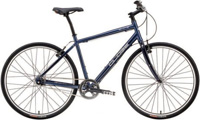 A bicycle distributor has recalled about 12,000 high-end bicycles because the front forks can break, posing a fall and injury hazard.
A bicycle distributor has recalled about 12,000 high-end bicycles because the front forks can break, posing a fall and injury hazard.
Specialized Bicycle Components, Inc. of Morgan Hill, California has recalled the bikes in cooperation with the Consumer Product Safety Commission (CPSC). The recalled bikes were manufactured by Kinesis of China. Specialized has received four reports of the front forks breaking. The front fork is the part of a bike which holds the front wheel up and allows the rider to steer. The four reports involved facial fractures, head and shoulder injuries and cuts.
The product recall spans a number of 2008 and 2009 men’s and women’s Global model bicycles. The models come in multiple colors and were sold nationwide at authorized Specialized retailers from July 2007 to July 2012. They sold for between $550 and $1,100. The recalled bikes include:
- Globe Elite
- Gloe Sport
- Globe Sport Disc
- Globe Centrum Comp
- Globe Centrum Elite
- Globe City 6
- Globe Vienna 3
- Globe Vienna 3 Disc
- Globe Vienna 4
- Globe Vienna Deluxe 3
- Globe Vienna Deluxe 4
- Globe Vienna Deluxe 5
- Globe Vienna Deluxe 6
Consumers are advised to immediately stop using the defective bikes and return them to an authorized Specialized retailer for a free installation of a free replacement fork.
Related:
- Specialized Bicycle Components Recalls Bicycles Due to Fall and Injury Hazards, CPSC.
Defective Drug Warning: Reumofan Diet Supplements
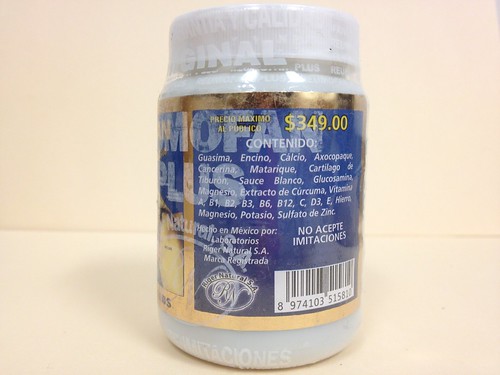 Those who take so-called “natural dietary supplements” want to listen to the Food and Drug Administration’s (FDA) latest alert on Reumofan Plus and Reumofan Plus Premium, which have now been linked to cases of death and stroke.
Those who take so-called “natural dietary supplements” want to listen to the Food and Drug Administration’s (FDA) latest alert on Reumofan Plus and Reumofan Plus Premium, which have now been linked to cases of death and stroke.
“Consumers who are currently taking Reumofan Plus or Reumofan Plus Premium, or who have recently stopped taking it, should immediately consult a health care professional,” said Elizabeth Miller, Pharm.D., acting director of FDA’s Division of Non-Prescription Drugs and Health Fraud.
The FDA issued its first alert on the dangers of Reumofan Plus on June 1, stating the drug had several active pharmaceutical ingredients not listed on the label. This week, the agency issued an updated alert for both the drug and Reumofan Plus Premium, saying it had since received reports of death, stroke and these symptoms:
- Severe bleeding in the gastrointestinal tract
- Dizziness
- Insomnia
- High blood sugar levels
- Problems with liver and kidney functions
- Corticosteroid withdrawal syndrome
These defective products are marketed as natural dietary supplements which treat arthritis, muscle pain, osteoporosis and bone cancer. If not properly supervised by a medical professional, those who stop taking the supplements can face serious withdrawal symptoms.
The defective drugs may contain corticosteroids and abrupt discontinuation can supress the adrenal glands, which regulate a number of hormone and body functions. Users could experience fatigue, low blood sugar levels, fainting and other symptoms.
The Reumofan products are manufactured in Mexico by Riger Naturals and sold on the Internet, flea markets and some retail outlets. The Mexican Ministry of Health has also issued a health warning to its citizens and ordered Riger Naturals to recall the products.
FDA testing of Reumofan Plus and Reumofan Plus Premium show they contain two ingredients which require prescriptions: diclofenac sodium and methocarbamol. Reumofan Plus also contained dexamethason, a type of corticosteroid.
The FDA offers consumers these tips for avoiding defective and dangerous drugs:
- Be wary of off-the-counter products which only have prescription counterparts.
- Be cautious when a label has a foreign language.
- Be aware that so-called “natural dietary supplements” are not subject to the same FDA pre-market review as prescription drugs and some over-the-counter drugs.
Related:
- Reumofan Products Pose Risk to Consumers, Food and Drug Administration.
- Dietary Supplements, Food and Drug Administration.
Defective Dehumidifiers Recalled by Sears and Kmart
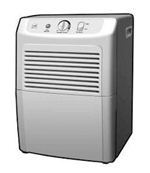 Sears, Roebuck and Co. and Kmart Corp. have issued a large product recall for dehumidifiers which can overheat, smoke, melt and catch on fire.
Sears, Roebuck and Co. and Kmart Corp. have issued a large product recall for dehumidifiers which can overheat, smoke, melt and catch on fire.
The voluntary recall, issued in cooperation with the Consumer Product Safety Commission (CPSC), is for 795,000 Kenmore Dehumidifiers. The devices were manufactured by LG Electronics (TIanjin) Appliance Co. Ltd., of Tianjin, China.
There have been 107 reports of incidents involving injury, including three cases of smoke inhalation. The humidifiers have caused more than $7 million in property damage.
The product recall covers 35-, 50- and 70-pint dehumidifiers which were manufactured between 2003 and 2005. They were sold at Sears and Kmart stores nationwide as well as the stores’ websites from 2003 to 2009 for between $140 and $220.
If you suspect you have a defective device, click the link below to see if your product model number is on the list and how to contact the store. Consumers who own a defective device are advised to immediately stop using it and unplug it. They will be compensated with a gift card which can be used at Sears or Kmart, as well as with a $25 coupon to purchase a new device at Sears.
LG Electronics Tianjin Appliance Co. issued another dehumidifier recall in 2009 and again in 2011 for 98,000 units. The Goldstar and Comfort-Aire dehumidifiers had a power connector which could short circuit, posing a fire risk. The company issued that recall after receiving 11 reports of property damage totaling more than $1 million. A Hudson, Mass. sustained $183,000 in damage from one of the defective dehumidifiers.
Those dehumidifiers were sold at The Home Depot, Walmart and Heat Controller Inc. nationwide from January 2007 and June 2008. In that case, consumers were advised to stop using the defective products and contact LG to arrange a free repair at an authorized service center.
Related:
Sears Recalls Kenmore Dehumidifiers Due to Fire and Burn Hazards, Consumer Product Safety Commission.
Dehumidifiers Recalled by LG Electronics Tianjin Appliance Due to Fire and Burn Hazards, Consumer Product Safety Commission.
Consumer Product Safety Commission.
Product Liability, Breakstone, White & Gluck.
Read More
Product Liability: Magnet Desk Toy is Children’s Choking Hazard
 The Consumer Product Safety Commission (CPSC) has taken a rare legal action seeking to stop sales of a magnet desk toy, alleging children are swallowing the pieces, then suffering serious injuries requiring surgery.
The Consumer Product Safety Commission (CPSC) has taken a rare legal action seeking to stop sales of a magnet desk toy, alleging children are swallowing the pieces, then suffering serious injuries requiring surgery.
The CPSC filed an administrative complaint on July 25 against Maxfield & Oberton Holdings LLC, of New York, N.Y., the maker of Buckyballs and Buckycubes. The government agency and company failed to agree on the CPSC’s proposed voluntary recall plan for the magnet sets with 216 units.
The CPSC alleges the popular desk furnishing contains a defect in design, packaging, warnings and instructions. It wants the company to stop selling the defective product, notify the public about potential for injury and offer consumers a full refund. It is the CPSC’s second time taking this type of legal action in 11 years.
The CPSC is intervening after receiving more than two dozen of reports young children and teenagers have swallowed the magnets, requiring surgery. At least a dozen involved Buckyballs.
When two or more magnets are swallowed, they can move toward each other through the stomach and intestinal walls, resulting in serious injuries such as holes in the stomach, intestinal blockage, blood poisoning and possible wrongful death.
The CPSC reports young children are removing the magnets from the kits and placing them in their mouth. Meanwhile, older children and teenagers have unintentionally swallowed the magnets while placing them in their mouths to mimic having a tongue ring.
At least 10 retailers, including Amazon.com, have agreed to stop selling the defective product. EBay is also removing these listings from its online marketplace.
In May 2010, the CPSC and Max & Oberton conducted a cooperative recall of about 175,000 Buckyball magnet sets for mislabeling. The toys were labeled “Ages 13+” and did not meet the federal toy standard that loose magnets not be sold for children younger than 14. Injury reports preceded and followed the notice.
In November 2011, the CPSC and Max & Oberton worked cooperatively to warn about the dangers that could occur, but injuries continued, leading to the CPSC’s latest action. The CPSC now says a recall is necessary because all these prior steps have been ineffective.
Related:
- CPSC Sues Maxfield & Oberton Over Hazardous Buckyballs and Buckycube Desk Toys, Consumer Product Safety Commission.
- Feds file suit against Buckyballs, retailers ban product, USA Today.
Defective Bikes and Equipment List for Cyclists
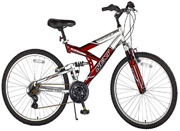 Each spring, cyclists throughout Massachusetts say goodbye to winter and put their bikes back on the road. But whether you cycle every day or just occasionally, now is the time to make sure your bike and equipment meets the latest safety regulations.
Each spring, cyclists throughout Massachusetts say goodbye to winter and put their bikes back on the road. But whether you cycle every day or just occasionally, now is the time to make sure your bike and equipment meets the latest safety regulations.
It is good practice to test and inspect key parts of your bike, such as the quick release wheels, brakes and pedals.Then check with the manufacturer of your bicycle. Look online and see if if offers an owners’ manual. If you have not done so, register your bike so you may receive recall notices.
You can also check the Consumer Product Safety Commission (CPSC) website for recent bicycle recalls. Each year, the CPSC recalls hundreds of thousands of bicycles and parts after receiving reports of defects and injuries.
Here are a few recent bicycle and equipment recalls from the CPSC:
Recalled Bicycles. Some 91,000 Bridgeway Bicycles were recalled in September 2011 because of a defective bicycle chain which can break, causing the rider to lose control and fall. The CPSC received 11 incident reports, including injuries, lacerations and contusions. Read more.
Children Bicycle Seats and Trailers. Two of the largest bicycle-related recalls involve defective children’s equipment. Topeak Babyseat II Bicycle Carrier Seats were recalled in April 2012 after two reports of near amputations and crushed fingers. When a child is lifted out of the seat, their fingers can get caught in a defective hinge mechanism. The product recall affected 30,400 consumers. Read more.
In January 2012, 44,000 Chariot bicycle trailers and 70,000 trailer conversion kits were recalled after 24 incident reports around the world, including three in the U.S. The trailer’s hitch mechanism can crack and break, causing the trailer to detach from the bicycle. Read more.
Helmets. Little Tricky Bicycle Helmets recalled 30,400 bicycle helmets in January 2012. Product testing demonstrated the helmets did not comply with CPSC safety standards for impact resistance. Read more.
Click for a full list of recent bicycle-related recalls from the CPSC.
Read More


